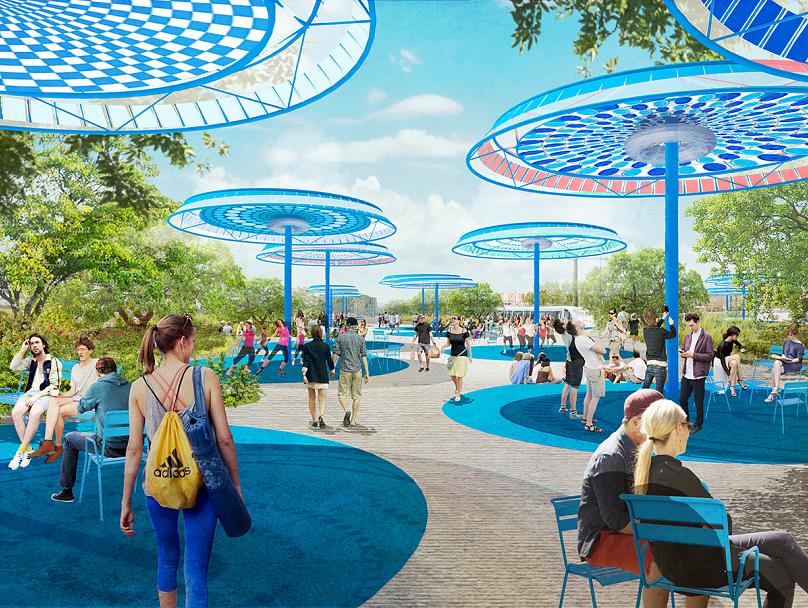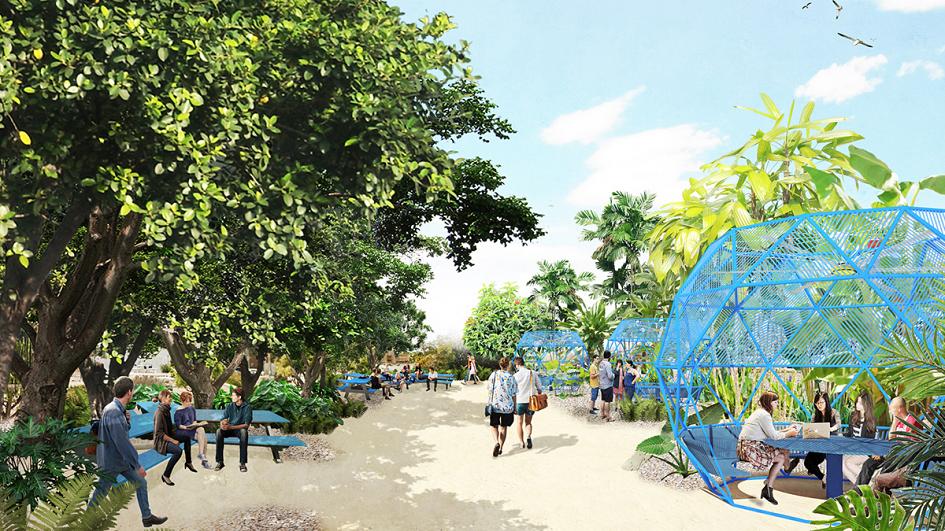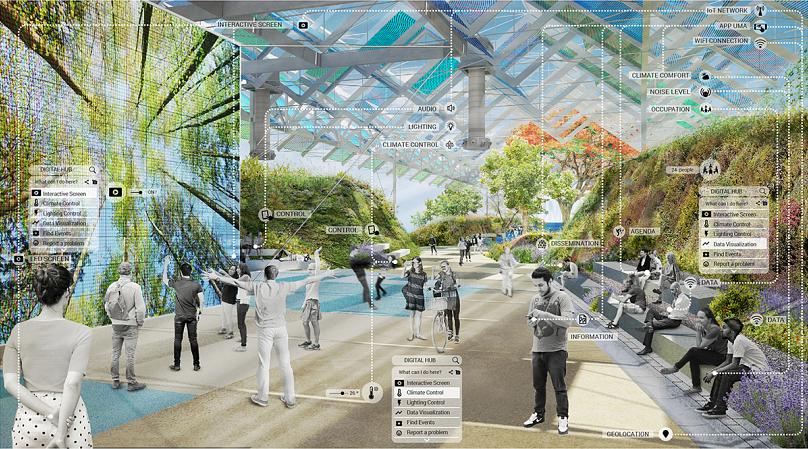SPANISH UNIVERSITY BUILDS FUTURISTIC ECO-CAMPUS FOR STUDENTS TO TAKE CLASSES OUTSIDE

Euronews_The University of Malaga has joined forces with Ecosistema Urbano, an architectural design company set to transform the campus into an environmentally-friendly space.
After being awarded a public tender to begin the project in 2016, Ecosistema Urbano is planning a new “open and innovative campus” for students in Malaga, to include outside classrooms. Spanning a surface area of 52 acres, the new design will bridge the Teatinos University Campus and the town, starting from the Louis Pasteur Boulevard.
With technology at the helm, the campus will be “digitally integrated” allowing for a new green infrastructure suitable for students to go about everyday activities such as studying, meeting and reading. The aim is to improve the climatic comfort and connectivity within an educational setting, by building more of an interaction between the physical and digital environments.

HOW WILL THE CAMPUS BE INTEGRATED INTO THE ENVIRONMENT?
Currently, what we know is there is a geological garden in the works, a tropical garden and digital water curtain, and students will have full access to USB ports outside.
Four main strategies are set to characterise the eco-plan for the campus, including opening the university to its urban surroundings, restoring and enhancing existing green areas and making meeting spaces open for use by both students and local citizens to improve social cohesion. The architects say this was largely inspired by the smart cities approach to town planning. The four main approaches are listed below:
- Connected Campus
- Green Campus
- Interactive Campus
- Open Campus
Using technology and sensors embedded into the architecture, outdoor spaces will be able to be “manipulated to support both educational and playful programming”, Ecosistema Urbano describes.
This means users can visualise real-time information and manipulate physical aspects of the space in an almost futuristic fashion. Outdoor comfort will improve through solar-powered climate conditioning systems such as evaporative cooling and geothermal air circulation. Everything will run on renewable energy systems and shading elements like green walls and sculptural canopies will further enhance the setting.

